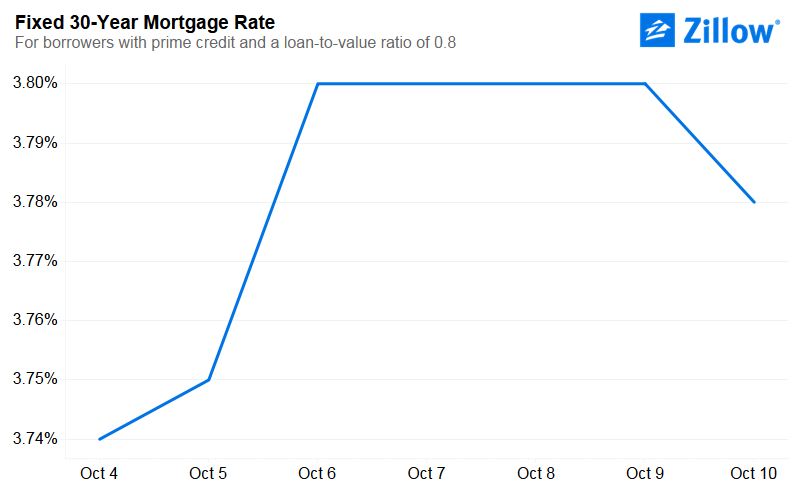Mortgage Rates Rise on Jobs Data, Fall on Fiscal Uncertainty
Friday’s September Jobs Report from the Bureau of Labor Statistics was primarily responsible for a sharp spike in rates last week.

Friday’s September Jobs Report from the Bureau of Labor Statistics was primarily responsible for a sharp spike in rates last week.

The standard, 30-year, fixed mortgage rate quoted on Zillow rose by about 9 basis points in the past week to 3.78 percent, hitting their highest levels since mid-July.
Friday’s September Jobs Report from the Bureau of Labor Statistics was primarily responsible for a sharp spike in rates last week. Although the headline data were weak – posting the first monthly decline in total employment in more than seven years – the weakness was widely seen as localized and temporary, and was attributed to the hurricanes that hit the Southeast in late August and early September. Beyond the headline numbers, overall wage data and regional employment outside the Southeast point to a strong job market. Markets read these underlying data as signaling a strong American economy, which would imply higher interest rates in the near term.
But last week’s rise reversed early this week, despite bond markets being closed on Monday for the Columbus Day holiday. Internal political divisions within the Republican party that emerged over the weekend highlighted the risks to tax reform proposals. The leading tax proposals being considered would likely cut taxes for many Americans which would, in the near term, boost growth and allow the Federal Reserve to raise interest rates at a faster pace or to a higher terminal level. As the prospects for passing these reforms became more uncertain over the weekend and early this week, interest rates fall back roughly to where they stood at the start of the previous week.
Those mortgage rates less closely tied to the long-term performance of the American economy – such as adjustable rate mortgages – fell less sharply early this week.